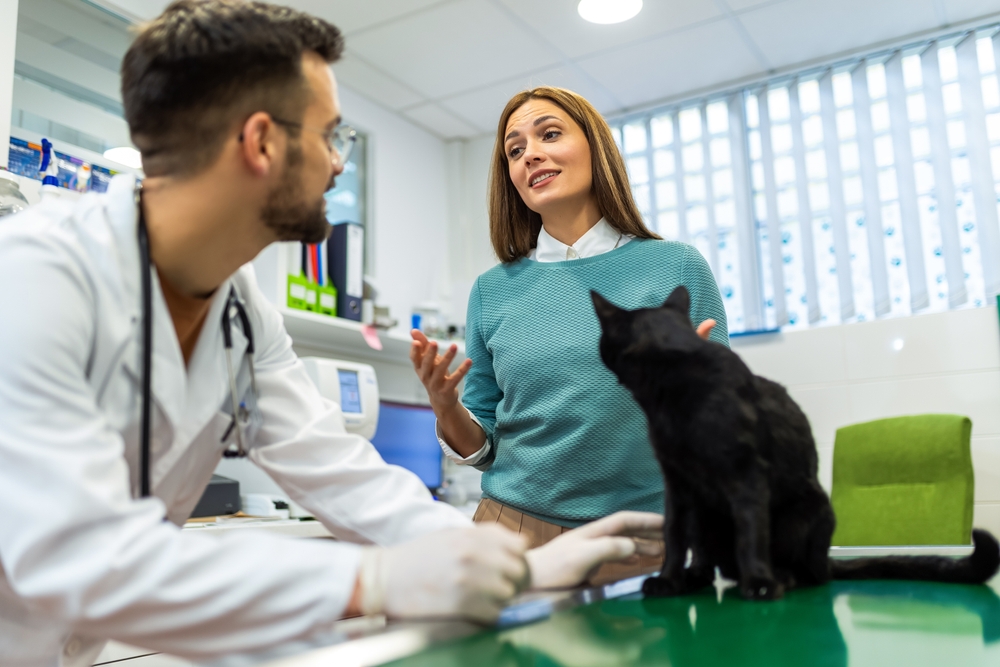How to Advocate for a Veterinary Referral
Sometimes your regular veterinarian may not have the specialized equipment or advanced training needed to diagnose or treat a complex pet health issue. As a pet owner, you know your furry family member best. If you believe your pet may benefit from consulting a specialist, it’s essential to understand how to request a referral with confidence.
This guide explains how to advocate for a veterinary referral—so your pet can receive the specialty veterinary care they need to feel their best.

Understanding the Veterinary Referral Process
Many specialty hospitals, including Oakland Veterinary Referral Services (OVRS), require a referral from your primary veterinarian before scheduling an appointment.
In most cases, your regular veterinarian completes a referral form that outlines your pet’s health history, current symptoms, test results, and any prior treatments. This ensures the specialist team has all the necessary background information to provide targeted, effective care.
If you believe your pet needs specialty care, start by discussing your concerns with your regular veterinarian. They often have trusted relationships with specific referral hospitals and can help guide you to the right specialist.
💡 Tip: If you’ve researched a particular hospital or specialist you’d prefer, let your veterinarian know. It’s perfectly appropriate to request a referral to a specific clinic like OVRS—and explaining why can help ensure a smooth process.
Questions to Ask Your Regular Veterinarian
Before moving forward with a referral, take time to understand your pet’s current condition and why a veterinary specialist may be helpful. Here are some thoughtful questions to ask:
- What condition do you suspect my pet has?
- What symptoms or test results led you to this conclusion?
- How long do you think my pet has had this issue?
- What treatment can you provide here versus what a specialist could offer?
- What diagnostic tests or procedures might the specialist perform?
- What outcomes should I expect from each treatment option?
These questions can help you make informed decisions and increase your confidence throughout the process.
What to Expect from a Veterinary Specialist Visit
A visit with a veterinary specialist is typically more in-depth than a routine checkup. You can expect:
- A detailed review of your pet’s medical history
- A comprehensive physical exam
- Advanced diagnostics (such as imaging, lab work, or specialized testing)
- Collaboration and communication between your referring veterinarian and the specialist
Afterward, the specialty team will share a clear diagnosis, a personalized treatment plan, and a cost estimate. You’ll also receive follow-up recommendations to continue coordinated care between your primary vet and the specialist.
How to Prepare for Your Specialist Appointment
Preparation helps ensure your visit is productive and stress-free for both you and your pet. Before the appointment:
- Bring all available medical records, lab results, imaging reports, and medication lists.
- Follow any pre-visit instructions provided by the specialty hospital.
- If your pet needs fasted testing, withhold food and water as directed.
- Arrive at least 10 minutes early to complete paperwork.
- Be ready to discuss finances or payment options at check-in.
Having everything organized helps the veterinary team focus on what matters most—your pet’s care. We hope this has helped you understand how to advocate for a veterinary referral for your pet’s health.
Partnering for Advanced Care
At Oakland Veterinary Referral Services, we’re honored to partner with both pet owners and primary veterinarians to deliver the highest level of specialty and emergency care.


